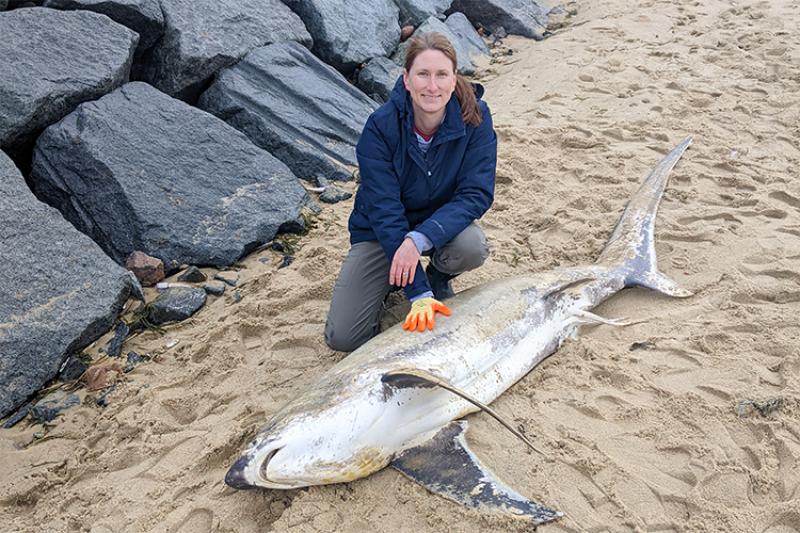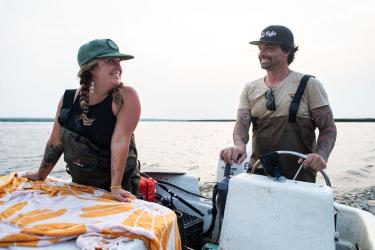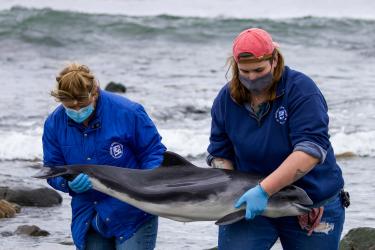Michelle Passerotti is a fish biologist for the Northeast Fisheries Science Center’s Apex Predators Program and Population Biology Branch. Her home base is at our Narragansett Lab in Narragansett, Rhode Island.
Can you tell us a little about yourself—where you grew up, how you got interested in science, where you went to college?
I grew up in Perry, Florida, which is a small town in Florida’s Big Bend region, sometimes referred to as the Nature Coast. My childhood was spent snorkeling the seagrass beds of Apalachee Bay picking up bay scallops, fishing for spotted seatrout and red drum with my dad, and generally being barefoot and outside. The vast array of critters I encountered during my dips into the Gulf of Mexico piqued my interest in marine biology. By age eight I knew I wanted to be a scientist.
I attended Florida State University (Go ‘Noles!), where I majored in biology and also participated in the certificate program in marine resource ecology. Through that program, I was fortunate to intern at the NOAA Fisheries lab in Panama City, Florida. During my internship, I tagged sharks and completed a shark diet study. I also participated in reef fish and habitat studies there. It was a busy summer! That internship experience introduced me to fisheries management and forged a path for me. It really helped shape my career.
After finishing my bachelor’s degree in 2003, I worked as a contractor at the Panama City Lab before moving on to complete a master’s degree at Louisiana State University in 2007. After a whole lot of living life, I earned my doctoral degree from the University of South Carolina in May 2021. My dissertation research focused on using near infrared spectroscopy—a type of chemistry using lasers—to age fish rapidly based on a non-destructive scan of their otoliths. This is work that I am able to directly apply to my new role at the Science Center.
Why did you want to become a scientist?
I became a scientist because science, especially biology, is captivating. It’s alive. It moves and breathes. We can know every foundational principle, then life adapts and we have a thousand new things to learn. I’ve never wanted to do anything else.
What advice do you have for the next generation of women scientists about a career in fisheries and/or marine science?
I encourage all aspiring scientists to push aside the idea that career paths are a zero-sum game. It’s not an all-or-nothing or one-size-fits-all, but it absolutely depends on the person captaining the ship. Especially for women, there tends to be this idea that having a family predisposes you to a certain schedule or secondary tier of choices when it comes to a career. While there are undeniable challenges, you are not a less capable scientist because you have a family. Never discount the value of your personal skill set and experiences. I didn’t start my doctoral degree until I was 36 years old with two elementary school-aged children and an active duty military husband who traveled and moved a lot.
After our first move in 2011, I was sure my career in fisheries was over. But instead of giving up, I became opportunistic. I leveraged my skills and my network of colleagues to find opportunities for progress in each new location, even if they seemed less than ideal at the time. Looking back, much of the experience I gained in those “less ideal” times has made me a better, more well-rounded scientist. Developing a supportive network of mentors and collaborators is key. The science world is small and those networks and relationships can open doors when you least expect it. Never be afraid to tap into it!
Lastly, having a clear vision of what you want from a career and a persistent drive to achieve your goals can help surmount even the largest obstacles.
For more information, please contact Heather Soulen.



